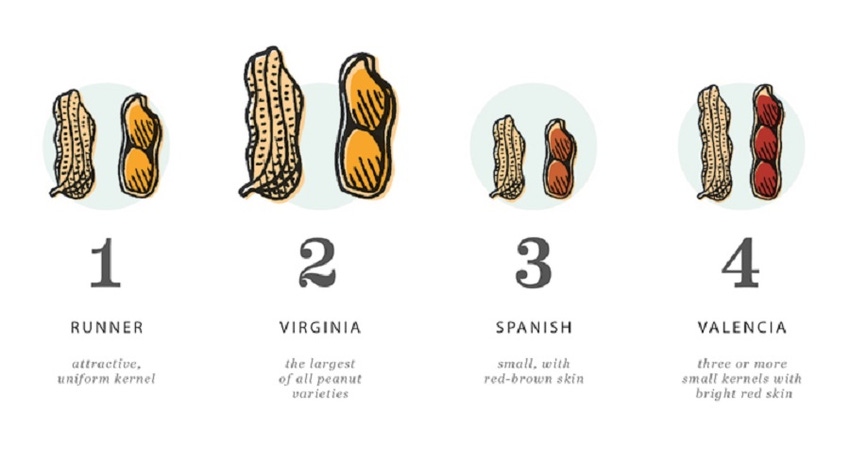
It's been a rough road in recent years for Valencia peanut producers in Eastern New Mexico and western parts of the Texas Panhandle.
Starting over five years ago, devastating drought for several years running rocked agriculture across the region, drying up crops and forcing cattle producers to cull herds as water tables dropped lower and lower, soil moisture all but disappeared and rivers and streams ran dry.
For peanut growers in the area, the problem was exaggerated in the fall of 2012 when the Sunland Peanut plant in Portales, New Mexico, was shuttered by the Federal Drug Administration (FDA) after a nationwide salmonella outbreak that sickened 41 people across 20 states was traced back to problems at the plant.
The company was the largest organic peanut butter processor in the nation at the time and produced both organic and non-organic products at the Portales facility.
For the latest on southwest agriculture, please check out Southwest Farm Press Daily and receive the latest news right to your inbox.
The incident developed at a critical time for Eastern New Mexico and West Texas Valencia peanut producers, most of whom were caught with a healthy and abundant crop of freshly harvested peanuts, leaving many growers in a quandary. Most of those peanuts had been delivered to Sunland, the buyer, and many farmers were either partially paid for their crop, never paid at all, or were forced to take a court settlement that in some cases offered only pennies on the dollar.
Valencia was the peanut variety of choice at Sunland because of its sweet flavor. Most Valencia varieties were grown in eastern New Mexico and western parts of Texas until the failure of the Sunland plant, so the unexpected closure hit local growers hard.
Back in September, three years after the plant closed, Ready Roast Nut Company of California reopened the Portales plant, celebrating what many hoped would be an economic boost to the region. At the official reopening ceremony, new owners announced they will be hiring between 100 and as many as 400 workers to operate the plant, which would include many of Sunland's laid-off work force.
But while the new plant will aid the general economy of eastern New Mexico, a check with farmers and Extension officials across the region indicates most Valencia growers have moved on and are not planning on growing peanuts in the foreseeable future.
Other options
"To be honest, I don't expect we will see regional growers returning to peanuts as a crop of choice," says New Mexico State University Extension Agent Patrick Kircher in Roosevelt County. "The new plant is relying on Valencias grown and shipped in from other areas and most of the farmers in Roosevelt County have moved on to other choices to keep down production costs and to explore other alternatives."
The primary catalyst for dropping peanuts from their rotation has been the absence of a local peanut buyer. A few growers were still owed money from Sunland at the time the plant failed and that may have left a "bad taste" in the mouth for many.
The length of time of the closure and disagreement over the bidding process to sell the property caused further delays and more disappointment. When the plant was finally sold to Golden Boy foods, instead of reopening the plant, new owners almost immediately entered into negotiations with Ready Roast and the entire delay in getting the plant up and running apparently turned out to be the last straw for many local producers who had already replaced peanuts with other crops.
"Some moved on to corn and even corn silage," Kircher said. "A few switched to cotton. We also grow a lot of forage, even alfalfa in this area, and with improved soil moisture (from) the return of rains this year and last, we are seeing an increase in dryland grain and forage crops, especially more milo by area farmers."
Grain sorghum particularly has done well this year Kircher said, and reports so far indicate only a few problems with sugarcane aphids like those experienced in South Texas and across parts of the High Plains.
"Once we started harvesting milo we realized we may have had a late season problem with sugarcane aphids. Some growers were reporting increased activity late in the season that they didn't know about. But a few had taken advantage of Section 18 emergency use of Transform and other chemicals, but not on a grand scale," Kircher added.
He admits that next year may be more challenging for milo as sugarcane aphids spread wider across the region and warns that rains would need to continue to keep soil moisture across the area at reasonable levels before crop decisions for spring crops could be made.
But with the potential for a wet winter driven by an exceptionally strong El Niño, there is a fair chance milo and corn will return next year as the primary crops of choice.
As far as peanut production, Kircher said he only knows of one grower across the region who harvested peanuts this year and so far hasn't heard any talk about returning to peanuts in the year ahead.
"I don't think we'll see that happening," he said.
About the Author(s)
You May Also Like




